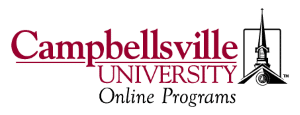Addiction is characterized by compulsive engagement in behavior or substance despite negative consequences. It could be abuse of drugs and alcohol or activities like gambling and gaming.
Many people who struggle with addiction have become problems for themselves, society and their loved ones. This is why there are a lot of searches online on how to overcome addictions. Many of those struggling are willing to go to any length to overcome this problem, which is why addiction counseling professionals will always be in demand.
These professionals are trained to provide therapeutic support and guidance to individuals struggling with addiction. To become one, you must go through the required education stages where getting a master’s degree is a prerequisite.
Meanwhile, you must know that obtaining the master’s degree is not restricted to on-campus as you can always get it online. Therefore, this article will cover everything you must know about getting an online master’s in addiction counseling.
 Northwestern University : Online MA in Counseling (CACREP Accredited)
Northwestern University : Online MA in Counseling (CACREP Accredited) Grand Canyon University : Master's Degree in Counseling (CACREP Accredited)
Grand Canyon University : Master's Degree in Counseling (CACREP Accredited) Liberty University : MA: Addiction Counseling (100% online, 8-week courses)
Liberty University : MA: Addiction Counseling (100% online, 8-week courses) National University : Master of Arts in Marriage and Family Therapy (Accredited. No GRE. Scholarships Available)
National University : Master of Arts in Marriage and Family Therapy (Accredited. No GRE. Scholarships Available) University of Denver : Master of Arts in School Counseling (CACREP Accredited)
University of Denver : Master of Arts in School Counseling (CACREP Accredited) Mid-America Christian University (MACU) : Master of Science in Counseling - Addiction & Substance Abuse (100% Online)
Mid-America Christian University (MACU) : Master of Science in Counseling - Addiction & Substance Abuse (100% Online) The Chicago School : M.A. in Clinical Mental Health Counseling (Online Programs. CACREP Accredited.)
The Chicago School : M.A. in Clinical Mental Health Counseling (Online Programs. CACREP Accredited.) Colorado Christian University : Clinical Mental Health Counseling, M.A. - Substance Use Disorders (100% online, or hybrid format. )
Colorado Christian University : Clinical Mental Health Counseling, M.A. - Substance Use Disorders (100% online, or hybrid format. ) Purdue University Global : Masters in Psychology (100% Online)
Purdue University Global : Masters in Psychology (100% Online)What Is Addiction Counseling?
Addiction counseling is a therapeutic approach aimed at helping individuals overcome substance abuse or behavioral addictions. It involves sessions where trained counselors try to save patients from their addictions by evaluating their health, recommending treatments, developing recovery skills and providing a judgment-free environment to aid their recovery process.
Addiction counseling addresses substance abuse and behavioral issues like drug, gambling, gaming, alcohol addictions and others. All these issues are known to deteriorate physical and mental health, thus leading to strained relationships, financial problems and reduced overall quality of life.
Consider a Featured Online Counseling Program
| School and Program Information | Online Program? Entry Requirements | Course Information | |
|---|---|---|---|
|
Northwestern University
Online MA in Counseling
 CACREP Accredited CACREP Accredited |
✔ Online
GRE Not Required
Bachelor's Required |
CACREP-accredited online Master of Arts in Counseling from The Family Institute at Northwestern University. Prepare to pursue licensure in as few as 18 months.
|
Learn More |
|
Grand Canyon University
Master's Degree in Counseling
 CACREP Accredited CACREP Accredited |
✔ Online
|
CACREP-accredited MS in Clinical Mental Health Counseling. Emphases: Marriage & Family Therapy, Christian Counseling, Childhood & Adolescence Disorders, & Trauma.
|
Learn More |
|
Liberty University
MA: Addiction Counseling
SACSCOC
|
✔ Online
100% online, 8-week courses
|
Our graduate degree in addiction counseling is designed to fulfill or exceed the requirements for many national and state board organizations. Online and on campus. Training Champions for Christ since 1971.
|
Learn More |
|
National University
Master of Arts in Marriage and Family Therapy
COAMFTE Accredited
|
✔ Online
GRE Scores Not Required
|
Earn your masters in Marriage and Family Therapy at National University. COAMFTE and IACSTE accredited.
|
Learn More |
|
University of Denver
Master of Arts in School Counseling
 CACREP Accredited CACREP Accredited |
✔ Online
No GRE Required; Minimum GPA 2.5 Required
|
With no GRE required, earn your CACREP-accredited Master's in School Counseling online in as few as 24 months from the University of Denver.
|
Learn More |
|
Mid-America Christian University (MACU)
Master of Science in Counseling - Addiction & Substance Abuse
|
✔ Online
GRE Scores Not Required
|
Gain specialized knowledge and credentials with our online, faith‑based, CACREP-accredited MS in Counseling—Addiction & Substance Abuse emphasis.
|
Learn More |
|
The Chicago School
M.A. in Clinical Mental Health Counseling
 CACREP Accredited CACREP Accredited |
✔ Online
Bachelor's Degree Required.
|
This online CMHC program prepares students for a career offering mental health services in a variety of settings. CACREP-accredited.
|
Learn More |
|
Colorado Christian University
Clinical Mental Health Counseling, M.A. - Substance Use Disorders
 CACREP Accredited CACREP Accredited |
✔ Online
Bachelor's Degree
|
CCU's substance use disorders counseling program trains you to provide leadership in developing, evaluating, and implementing holistic models for addiction treatment. Required to attend a five-day on-campus residency held each summer of the program. Apply for free!
|
Learn More |
|
Purdue University Global
Masters in Psychology
HLC Accredited
|
✔ Online
|
Advance your expertise and career studying behavior approaches, neuropsychological perspectives, issues in psychopathology, and cognitive psychology.
|
Learn More |
*Sponsored Counseling Programs
For detailed degree information, view the guides to:
Online CACREP Accredited programs | Online MPCAC Accredited programs
Why Earn a Master’s Degree in Addiction Counseling?
A bachelor’s degree isn’t enough to grow your career in addiction counseling, especially if you’re passionate about the field. Like other medical fields, you need a master’s degree to provide you with the advanced knowledge and skills to help people struggling with addiction effectively.
Many employers would rather go for a master’s degree holder if they were to choose because they believe the master’s degree holder has more knowledge and experience.
As a master’s in addiction counseling graduate, you have many career paths. You can become an admission coordinator, alcohol and drug coordinator, assessment specialist, case manager, and correctional program specialist.
Aside from that, you need a master’s in addiction counseling to become a licensed addiction counselor.
Benefits of a Master’s Degree in Addiction Counseling
Obtaining a master’s degree in addiction counseling comes with lots of benefits. See some of them below.
- Specialized knowledge—The substance abuse counselor degree is an opportunity for you to niche down and become an expert in a specific field of interest. With this program, you’ll have an in-depth knowledge about addiction, the treatments and therapeutic approaches to addressing addiction issues.
- License and certification—Many states require addiction counselors to be licensed before they can practice. Some certifications include the MAC credential, Certified Alcohol and Drug Counselors(CADC), Registered Alcohol and Drug Technicians (RADTs) and others. Each of these certifications has specific requirements based on states and organizations, but obtaining a master’s degree in addiction counseling seems to be a general requirement.
- Wider career opportunities—A master’s degree opens a wider range of career opportunities. With it, you can work in various settings, including clinics, rehabilitation centers, and private practices.
- Higher earning potential—Higher knowledge and experience will attract higher employer earnings. So, to make more money from an addiction counseling career, you should consider obtaining a master’s degree.
- Research Opportunities—If you’re interested in research, a master’s degree can be a stepping stone to further clinical research in addiction counseling. This allows you to deepen your understanding of the field and contribute to its growth.
Reasons to Opt for Online Studies
The rise of online studies in recent times as a result of the advancement in technology can’t be denied. The internet and technology have made connections and communication easier. Physical presence is no longer compulsory to create relationships, build connections or learn something online. You’re now able to take a full course online and earn certifications.
Nowadays, people prefer online courses to in-person courses because of their flexibility and convenience. Online courses allow you to learn at your own pace and in your preferred location. If you’re interested in an online addiction counseling degree, there are a lot of online schools to consider. The Hazelden Betty Ford Private School and the University of Minnesota Master’s of Professional Studies in Addiction Counseling are top choices.
Costs of an Online Master’s Degree in Addiction Counseling
When it comes to the cost of an online master’s degree in addiction, many factors come into play. The institution, program length, and miscellaneous expenses determine the overall cost of studying for an online addiction counseling degree.
The only thing you won’t have to worry about is the accommodation cost, which is almost unavoidable with a traditional on-campus program.
Meanwhile, based on the tuition fees of various online master’s programs, the average tuition fees can range from $15,000 to $40,000 or more.
What you can do on your side is to research different programs, compare their associated cost and get the one that suits your budget and academic goals. You should also know that additional expenses like textbooks and technology fees may apply.
 Northwestern University - Online MA in Counseling (CACREP Accredited)
Northwestern University - Online MA in Counseling (CACREP Accredited)
 Grand Canyon University - Master's Degree in Counseling (CACREP Accredited)
Grand Canyon University - Master's Degree in Counseling (CACREP Accredited)
 Liberty University - MA: Addiction Counseling (SACSCOC Accredited)
Liberty University - MA: Addiction Counseling (SACSCOC Accredited)
 National University - Master of Arts in Marriage and Family Therapy (COAMFTE Accredited)
National University - Master of Arts in Marriage and Family Therapy (COAMFTE Accredited)
 University of Denver - Master of Arts in School Counseling (CACREP Accredited)
University of Denver - Master of Arts in School Counseling (CACREP Accredited)
 Mid-America Christian University (MACU) - Master of Science in Counseling - Addiction & Substance Abuse (Higher Learning Commission (HLC) Accredited)
Mid-America Christian University (MACU) - Master of Science in Counseling - Addiction & Substance Abuse (Higher Learning Commission (HLC) Accredited)
 The Chicago School - M.A. in Clinical Mental Health Counseling (CACREP Accredited)
The Chicago School - M.A. in Clinical Mental Health Counseling (CACREP Accredited)
 Purdue University Global - Masters in Psychology (HLC Accredited)
Purdue University Global - Masters in Psychology (HLC Accredited)
Curriculum Overview for an Online Master’s in Addiction Counseling
The curriculum of an online master’s in addiction counseling gives you a glimpse of what to expect during your course of study. Here are some of them.
- Foundations in Addiction Studies—This is like an introduction to concepts like addiction studies. It covers the theories, models, and concepts students must know about addiction studies.
- Introduction to Evidence-Based Practices and the Helping Relationship—This course introduces students to evidence-based practices regarding helping relationships, emphasizing proven techniques to help addiction patients.
- Applied Psychopharmacology—In this course, students learn about the effects of various medications on psychological and behavioral conditions, thus enhancing their understanding of psychopharmacology’s role in treatment.
- Foundations of Group Work—A course that focuses on the fundamental principles of group therapy, teaching students how to facilitate and manage therapeutic groups effectively.
- Foundations of Co-occurring Disorders—Students will explore the complex interplay between mental health and substance use disorders with this course. This will help them gain insights into assessment and treatment strategies for patients with co-occurring conditions.
- Multicultural Foundations of Behavioral Health—This course examines the cultural factors influencing behavioral health, fostering an understanding of how diverse backgrounds impact assessment and treatment approaches.
- Assessment and Treatment Planning—Students learn to assess individuals’ needs and create comprehensive treatment plans tailored to their unique circumstances and challenges.
- Internship in Behavioral Health—As part of hands-on training, students engage in supervised internships within behavioral health settings, applying theoretical knowledge and gaining practical experience.
Admission Requirements for Online Master’s in Addiction Counseling Programs
The admission requirements for online masters in addiction counseling programs are similar to the on-campus programs. While each program may have unique requirements, here are some general requirements you may consider.
- Bachelor’s degree from an accredited institution.
- Letters of recommendation.
- A statement of purpose.
- Transcripts.
- Sometimes relevant work or volunteer experience.
Some programs may also require GRE scores or a relevant background in psychology or counseling.
Importance of Accreditation for Online Master’s in Addiction Counseling Programs
Accreditation status is one of the most important things students look out for when enrolling in a program. A program being accredited means it met the required standard for the course to be taught. This standard extends to the course content, the school facilities, the teachers and more.
When it comes to online master’s in addiction counseling programs, MAC credential and the Council for Accreditation of Counseling and Related Educational Programs (CACREP) are the main ones to look out for.
Getting enrolled in an accredited program means that the program is up to par with industry standards, thus making it more widely recognized and accepted by employers and licensing bodies.
Career Opportunities for Graduates with a Master’s in Addiction Counseling
Graduates with a Master’s in Addiction Counseling are open to many career opportunities in mental health and addiction treatment. Here are some potential career paths.
- Substance Abuse Counselor—Provide counseling to individuals struggling with substance abuse and addiction.
- Clinical Mental Health Counselor—Offer therapy and support to individuals dealing with various mental health issues, including addiction.
- Marriage and Family Therapist—Work with couples and families to address relationship and communication issues, sometimes tied to addiction.
- Program Director—Oversee addiction treatment programs, managing staff, and ensuring the quality of care.
- Private Practice—Establish a private counseling practice specializing in addiction and mental health issues.
Salary and Job Outlook for Addiction Counselors with a Master’s Degree
Many factors come into play regarding what you can earn as an addiction counselor. Among them are your experience, job type, and location. The U.S. Bureau of Labor Statistics (BLS) provides relevant salary and job outlook data.
According to the BLS, the average annual wage for substance abuse, behavioral disorder, and mental health counselors was $49,710 in May 2022. The lowest 10 percent earned less than $34,580, and the highest 10 percent earned more than $82,710. Mental health counselors working at hospitals earned $54,740, while those in individual and family service settings earned $49,210. Counselors in outpatient mental health and substance abuse centers earned $48,640 and those in residential and mental health and substance abuse facilities earned $44,150.
The U.S. Bureau of Labor Statistics projects industry growth of 18 percent from 2022 to 2032, much faster than the average for all occupations. There will be about 42,000 openings for substance abuse, behavioral disorder, and mental health counselors annually.
Scholarships and Financial Aid for Prospective Students
If you’re a student hoping to study online for a master’s in addiction counseling, you should look out for scholarships and financial support to help you cut the study costs.
You can start by exploring scholarships offered by colleges and universities and external organizations related to addiction counseling. You can also watch out for government grants and loans.
Meanwhile, some scholarships you can look for include the Hazelden Betty Ford Graduate School of Addiction Studies Scholarship and Grants, awarding students over $700,000; the Davis-Putter Scholarship Fund, giving up to $15,000 per student; the Pride Foundation Scholarship, giving up to $10,000, and Scott and Paul Pearsall Grant giving up to $10,000. There are more online. Just explore.
Frequently Asked Questions (FAQs) for Online Master’s in Addiction Counseling
Earning Potential with a Master’s in Addiction Counseling
With a master’s degree in addiction counseling, your earning potential can vary depending on location, experience, and the organization you work for. On average, substance abuse, behavioral disorder, and mental health counselors typically earn annual salaries in a range of $35,000 to $80,000. Counselors who gain experience and earn advanced degrees increase their earning potential.
Typical Duration for Completing an Online Master’s in Addiction Counseling
The typical duration for completing an online Master’s in Addiction Counseling can range from 1.5 to 3 years, depending on the program and whether you’re studying full-time or part-time. Some programs offer accelerated options that can be completed in as little as 12–18 months.
Value Proposition: Is Pursuing an Online Master’s in Addiction Counseling Worth It?
Opting for an online Master’s in Addiction Counseling could prove valuable if you aim to push your mental health and addiction therapy career to a greater height. Also, since it’s an online course, you can easily juggle your studies with work and other obligations.
The Shift from GRE Requirements: Why Some Schools Opt Out
Some schools stopped requiring the GRE to make the application process more accessible. Instead, they assessed applicants based on other criteria like academic performance, letters of recommendation, and relevant experience.
Completing Your Master’s in Addiction Counseling: Is 100% Online an Option?
Yes, many institutions offer fully online masters in addiction counseling programs. Such programs allow you to complete your coursework remotely, which provides greater flexibility for individuals with commitments. However, some programs may have in-person requirements for certain practical components.
Exploring Career Pathways: Where Can a Master’s in Addiction Counseling Take You?
A Master’s in Addiction Counseling can open doors to various career pathways. Graduates can work as addiction counselors, substance abuse therapists, clinical directors, program coordinators, or even in private practice. Besides, the U.S. Bureau of Labor Statistics has predicted that the demand for qualified addiction counselors will grow by 22 percent in the next ten years.
List of Programs
Northwestern University 🗹 Online 🗗 Masters
Grand Canyon University 🗹 Online
Liberty University 🗹 Online
National University 🗹 Online Courses Start Weekly
University of Denver 🗹 Online 🗗 Masters
Mid-America Christian University (MACU) 🗹 Online


 Colorado Christian University - Clinical Mental Health Counseling, M.A. - Substance Use Disorders
Colorado Christian University - Clinical Mental Health Counseling, M.A. - Substance Use Disorders

